- Home
- Michael Murphy
The Big Brush-off Page 7
The Big Brush-off Read online
Page 7
I laid it on pretty thick. “I thought he was being overly cautious. Will you ever forgive me?”
The receptionist nodded. “I’ve had two babies, and you need to listen to your doctor.” She shot an angry glare down the corridor toward Fat Al’s closed office door. “Mr. Jacoby can be very unreasonable.”
“It’s just…” Laura’s voice trembled. “We promised Katie Caldwell’s mother we’d do what we can to solve her daughter’s murder.”
We’d done nothing of the kind. When a tear slid down Laura’s cheek, I handed her my handkerchief.
She dabbed at her eyes. “Thank you, darling.”
The receptionist took a quick look at the clock and lowered her voice. “There’s a diner two blocks down.”
I nodded. “State Street Diner. I remember.”
“I get a lunch break in a half hour. If you want to wait there, I’ll bring you the file. Katie Caldwell, nineteen twenty-five, right?”
My last confrontation with Fat Al had been over an office worker. “We wouldn’t want you to get in any trouble.”
She thumbed down the corridor. “He wouldn’t hit a woman.”
I wasn’t ready to agree.
She smiled at me. “Is this your first baby?”
I wasn’t sure how to answer. I lacked Laura’s improvisation skills.
“It is.” Laura squeezed my hand, and I pretended to help her to her feet. She smiled at the receptionist. “Bless you.”
Chapter 10
Three Gifts I Couldn’t Forget
Heat shimmered off the sidewalk in the midday summer sun. Laura slipped on her sunglasses, looking the part of the movie star she was.
“Bravo, Miss Wilson.”
Laura hooked her arm in mine as we walked toward the diner. “Don’t give me that look, darling. I feel bad enough about using the receptionist to get a look at your old file.”
“You should.”
“She was swell, darling, but I was thinking about Mary Caldwell. Besides, the receptionist wanted to help us, she just wasn’t sure how. Didn’t you see the look of contempt she shot her boss?”
“You’re not just a great actress, you read people better than I do.”
When we reached the diner, a small brass bell tinkled as we opened the door and went inside. The place was half-empty. Stools with red seats faced a yellowed Formica counter. At one end was a domed cover that shielded doughnuts from the occasional fly. At the other end of the counter, another dome covered slices from the pies of the day.
We took a booth alongside the front windows. Little had changed about the place in ten years, including a bottle of ketchup with a crusty ring beneath the cap that sat on our corner table with a view of the front door.
Back in the day, the State Street Diner always seemed crowded with customers and employees of nearby businesses, regardless of the time of day. Business was slow everywhere now, it seemed.
From between half-filled salt and pepper shakers and a paper napkin dispenser, Laura grabbed a one-page menu stained with coffee and ketchup.
I snatched a menu and swatted a fly against the grimy window that probably hadn’t been scrubbed since the last time I was in the place. The menu hadn’t changed, just the stains. Coffee only for me.
Laura studied the menu. “What about a baby?”
I glanced toward the menu. “A baby what?”
Laura laughed until she snorted. “No, darling, a baby. You’ve heard of them. They’re like people, only smaller. What if I was really expecting?”
The subject startled me as it would most men, but I tried not to show that fear made it hard to breathe. We’d talked in the past about having kids, but the last time was years ago. Having been abandoned by her mother and raised by an abusive father, she wasn’t as certain about children as I was.
Still, with my tenuous career, the timing wouldn’t be perfect. “I love children but, sweetheart, we don’t even have a place we call home.”
“Not now.”
Did she want to have a baby soon?
Laura burst out laughing. “Darling, you should see your face. You look like you did when the Hollywood police were about to arrest you. Relax. We have plenty of time for children.”
I let out an exaggerated sigh of relief.
Laura grinned and smacked me with the menu.
A waitress in a wrinkled yellow uniform hurried to the booth. She pulled out an order pad and pencil then froze. “You’re that actress…” She snapped her fingers. “Don’t tell me.”
Laura smiled. “Laura Wilson.”
The woman shook her head. “No, you’re Myrna Loy, aren’t you?”
I chuckled. “I’m pretty sure she’s Laura Wilson. I’m her husband.”
The waitress laughed. “That’s right. You were hilarious in Midnight Wedding, Miss Wilson.” She gave Laura her order pad and pencil. “Could I have an autograph?”
“Sure.” Laura signed the order pad and handed it back to the waitress. “My husband is a famous mystery writer.”
The waitress tore off the autograph, stuffed it in her pocket, and gave me the once-over. “Really? My husband’s a famous painter, at least around here.”
Laura’s eyes widened. “There are wonderful painters on the East Coast. What kind of painting? Impressionist?”
The waitress wrinkled her brow. “He paints houses, a few barns.” She pulled a business card from a pocket in her uniform and set it in front of Laura. “He does terrific work. I’m not just saying it because he’s my husband.”
I covered a smile with one hand. “I’ll just have coffee.”
“And a Danish,” Laura added.
Laura set the menu back between the two shakers. “I’ll have the same.”
The waitress stuffed her order pad in her uniform and her pencil behind her ear. She turned in a huff, as if our meager order ensured a small tip.
As she walked away, I smiled at Laura. “Famous painter. You thought she was married to N. C. Wyeth, didn’t you?”
She crumpled her napkin and threw it at me.
It flew past my shoulder and landed in a cup of tea in front of a matronly woman and her husband.
Laura giggled then held up one hand. “Ma’am, I’m so sorry. I’ll order you another tea.”
The waitress returned with two cups and filled them with coffee.
Laura asked the waitress to replace the cup of tea she’d ruined.
I took a sip. The coffee tasted like it had been filtered through an old towel.
She set plates with cheese Danishes in front of us and placed forks and napkins beside both. “Thanks for the autograph, Miss Wilson.”
Laura sipped her coffee and shuddered.
The bell above the door jingled as the Pinkerton receptionist stepped into the diner. She spotted us right away, tugged at a hat shielding her face, and stopped beside our booth, clutching a manila folder. She glanced around the diner, looking a little less sure of her actions than she had in the Pinkerton lobby. She dropped the folder in front of me.
Laura slid the folder back. “We don’t want you to get into any trouble.”
“It’s all right. I get a half hour for lunch. I have to return it before Fat Al decides to go snooping around. I’ll have a seat at the counter.”
She smiled at Laura. “You feeling better?”
Laura rubbed her stomach. “I was until a few minutes ago, when I found out Jake doesn’t want kids.”
What?
The woman shot me a scorching glare. “You should’ve thought of that when you were…getting married.” She turned on her heel and took a stool at the counter.
I frowned at Laura. “Why did you say that?”
With a twinkle in her eye, Laura reached for the folder. “Isn’t that what you said earlier?”
“Not at all.” I waved the waitress over and told her to put the receptionist’s lunch tab on our bill then opened the file. My original, and last, Pinkerton case folder. I pulled my notebook and pencil from a jacket pocket.
I set the familiar high-school photo of Katie in front of Laura.
Laura shook her head. “What a lovely girl.”
I nodded. “According to everyone I talked to, she was.”
I took notes as I scanned the report summary I typed up before leaving. Something jumped out that I’d nearly forgotten. “She was killed on Founder’s Day.”
“What’s Founder’s Day?”
“Celebration of the town’s founding. People come from all around for a carnival-like atmosphere with food, games, a few speeches, and, in this case, a reenactment of the founding of Hanover. The event complicated the investigation because the killer might’ve been someone from out of town.”
“Maybe she spurned the advances of someone who didn’t take kindly to being rejected.”
I handed Laura my summary report. “After their three primary suspects’ alibis checked out, the local authorities thought it might be someone from out of town. I never did.”
“Three?”
I sorted through a half-dozen photographs. I set one in front of Laura. “The boyfriend, Alan Tremain.”
As she nibbled on her Danish, she picked up the photo. “Guess our bellhop had him pegged.”
I summarized what I’d learned about the young man, seventeen at the time of the murder. He was nice-looking with white teeth and coal-black hair. He seemed devastated by Katie’s death, even six months after the incident, when I first interviewed him. In the beginning, he’d been the cops’ number one suspect. I glanced at the photo of the baseball trophy he’d given Katie, his most prized possession, which became a weapon someone used to bash her brains in.
“His alibi?”
“Alan was working with his uncle in his uncle’s garage.”
Laura looked skeptical. “Didn’t you tell me the least reliable alibis were from relatives?”
I nodded. “The cops were skeptical, but then a customer came forward and confirmed the alibi.”
Laura slid the picture toward the folder. “That’s pretty solid.”
“Luke Jackson, he was a classmate of Alan’s, but hardly a friend. Alan was suspended a week the previous year for beating up the kid.”
“He has a history of violence.”
I set a photo of the second suspect in front of her. “George Hanson.”
“Handsome, debonair.” She studied the photo. “Let me guess. Katie’s teacher.”
“Bingo.”
She studied my face. “You didn’t like him much, did you?”
“Arrogant, pompous. Students thought he and Katie were playing footsie after school. One mentioned seeing him come out of Katie’s house.”
“Did that happen?”
“He admitted it. Said he dropped off homework when she was sick.”
She took a bite of Danish and gestured with her fork. “My teachers never did that.”
“Did any ever give you a book of poetry?”
Laura laughed. “Hardly. I was a skinny girl with a gap in my front teeth in high school.”
I didn’t remember that image. Laura had always been beautiful from the day she moved into our neighborhood. I recalled the book of poetry sitting on Katie’s nightstand. “Beauty is truth, truth beauty.”
“John Keats!” Laura rolled her eyes. “What kind of teacher gives a young girl Keats?”
“Hanson was more than just a high-school teacher. He was also the son of one of the town’s movers and shakers, and harbored political ambitions of his own. I thought the cops went easy on him. He was at a Founder’s Day party in the town square the night Katie was killed. He claims he was there until things closed down, but he could’ve slipped away without being noticed.”
Laura took a final bite of her Danish. “What else have you got?”
I placed a third suspect in front of her.
She dropped her fork. “You’re joking. A priest?”
“Father Ryan.”
“The same man who brought Mary Caldwell to New York to convince you to get involved in the case again?”
“One and the same.” I handed her a picture of the rosary Katie clutched in her hand as she died. I never knew whether she grabbed the rosary for comfort or to leave a final clue.
“Let me guess, Father Ryan gave her this.”
I nodded.
“She was a popular girl who enjoyed receiving gifts.”
“He said it was a present for her First Communion.”
“You believe him?”
I shrugged. I liked Father Ryan. He’d been a comfort to Mary after the murder, and from what they said had been there for her over the past ten years. However, I never dismissed him as a suspect.
Laura nodded to my Danish. “You going to eat that?”
I slid the plate in front of her. She was eating as if she really was expecting.
She took a bite and swallowed. “Why would a priest who came to New York to talk you into reopening your investigation still be a suspect?”
“He was at the time. He couldn’t shake whispers about a dubious past. One story involved a young nun in his previous parish in Chicago. The church transferred her to a convent in Puerto Rico and sent him to Hanover. A year after he arrived, the husband of a church secretary alleged Father Ryan had an affair with his wife. They both denied it, but the husband made quite a stink and left town. He’s been on thin ice ever since, but the cops didn’t consider him as seriously as I did.”
“I suppose he was close to Katie as well.”
I nodded. “She belonged to a youth group he ran that helped prepare meals for the elderly.”
“What was his alibi?”
“He was hearing confession.”
“Of course, no one who confessed would say they were there.” Laura let out a sigh. “What did the cops and you think was the motive for Katie’s murder?”
“The theory for all three suspects was that Katie had a relationship she wanted to end. If the boyfriend did it, he didn’t want to break up. If the teacher or the priest was having a relationship with a sixteen-year-old girl, they might worry she’d tell someone, ruining their life.”
Laura finished the second Danish. “A boyfriend, a teacher, and a priest. If they went into a bar together, you’d have the beginnings of a joke.”
She dabbed her mouth with a napkin. “I had a crush on a priest.”
“Was this recently?”
Laura snickered. “No, darling. When I was in high school.”
“I thought you had a crush on me in high school.” I couldn’t believe I hadn’t known this story before. The only priest I heard her talk glowingly about was a portly man in his fifties. “Father Tim?”
Laura laughed and slapped the table. “Oh, my goodness, no. Father Michael, from Dublin.”
I searched my memory and finally claimed the image of the short, thin man with a thick Irish brogue. “Really.”
“A schoolgirl crush. But he left after six months, if you remember, and by then I’d fallen in love with Tom Sawyer.”
Me.
Laura glanced toward the receptionist finishing a bowl of soup. “You told me once that on cases you worked, the most obvious suspects were rarely the guilty ones. Otherwise, they would’ve been arrested before someone hired a private detective. You think the killer was one of these three?”
“I did at the time. Now I’m not sure. All three suspects are important people in town and have plenty of friends. If anyone thinks we’ve come to Hanover to investigate Katie’s murder, it will stir up a hornet’s nest.”
“No one will get that idea.” She patted my hand. “You’ll be busy working on your novel, and I’ll be busy shopping.”
A Hollywood movie star shopping in town would keep tongues wagging.
The Pinkerton receptionist came to the table as, in the next booth, a broad-shouldered man with an Oliver Hardy mustache and belly lit up a thick cigar. “Thanks for paying for my lunch.” She grabbed the folder and slipped it in her purse.
I nodded. “Thank you for helpin
g.”
She shot the cigar smoker a look. “Put that out. This lady’s expecting. You want to make her sick?”
“A little cigar smoke never hurt nobody.”
She stared at him, hands on hips.
“It’s not worth arguing over, doll.” The man crushed the cigar into an ashtray and nodded toward me. “Dames. We never should have let them vote.”
The receptionist nodded toward Laura’s coffee cup. “When I was expecting, I learned coffee will keep the baby up all night. You won’t get a lick of sleep.”
Laura glanced at her cup. “You’re right. All of this is so new to me, to me and Jake.”
“You’ll do fine.” The receptionist stepped away from the booth then glanced back and smiled. “Best of luck with your baby.”
Chapter 11
Terry and the Pirates
Since the trip would take at least two hours, we needed a car for the rest of the week. The waitress with the famous painter for a husband directed us to a Ford dealership that rented cars, two blocks from the diner. Her husband had painted the lobby a year earlier.
Laura picked out a blue Ford sedan with a chrome grill, running boards, and a roomy interior. The car was a bit pricy for a week’s rental, but it was roomy and comfortable, like my shoes.
I started the car. The engine purred like a house cat curled in a fat lady’s lap.
By the time we made it out of Philadelphia, the sun dipped below the horizon. We didn’t talk about Katie, or Laura’s career. Instead, the conversation drifted to my writing. I handed her my notebook and she read the notes I jotted down on the train.
When she finished, Laura set the notebook beside her. “Let’s assume for a moment that Mildred’s right, that you’ve forgotten how to connect with Blackie. When I read a screenplay, I know very little about the character I’m interested in playing, just what’s in the script. You have the advantage of knowing Blackie more thoroughly than that. From what I’ve read, I know he cares about victims of crime and takes it personally because his old man was shot when he was a kid. Blackie drinks too much and refers to women as dames, doll, or dollface. He doesn’t like anyone under the age of eighteen and calls them kid. He wears a pink carnation in his lapel instead of a white rose like you. Tell me something about the character that hasn’t been in any of the books.”

 Little Squirrels Can Climb Tall Trees
Little Squirrels Can Climb Tall Trees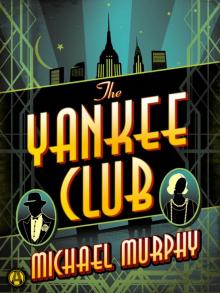 The Yankee Club
The Yankee Club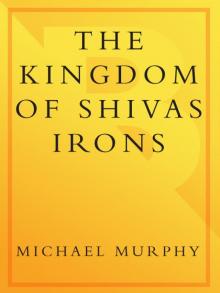 The Kingdom of Shivas Irons
The Kingdom of Shivas Irons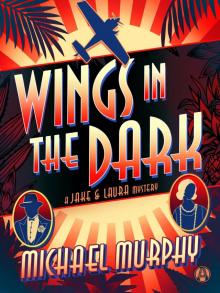 Wings in the Dark
Wings in the Dark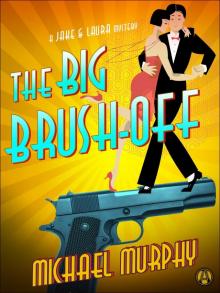 The Big Brush-off
The Big Brush-off Dreamspinner Press Year Nine Greatest Hits
Dreamspinner Press Year Nine Greatest Hits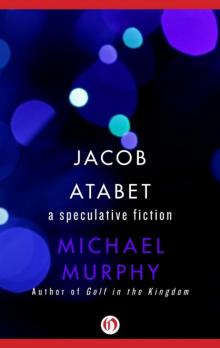 Jacob Atabet
Jacob Atabet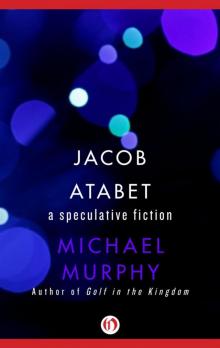 Jacob Atabet: A Speculative Fiction
Jacob Atabet: A Speculative Fiction A Night at the Ariston Baths
A Night at the Ariston Baths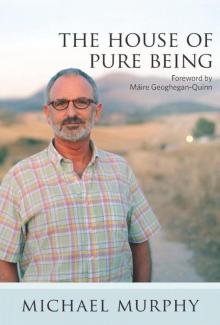 The House of Pure Being
The House of Pure Being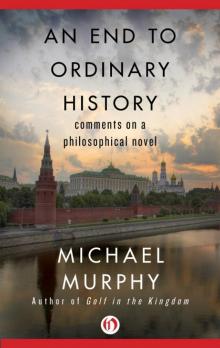 End to Ordinary History
End to Ordinary History Golf in the Kingdom
Golf in the Kingdom All That Glitters
All That Glitters